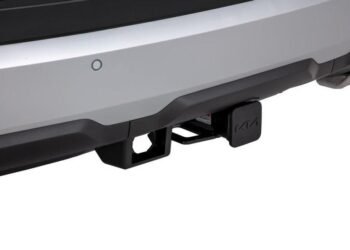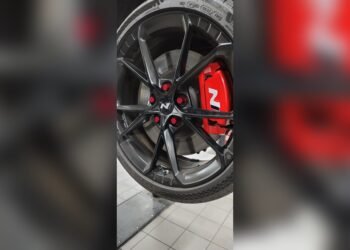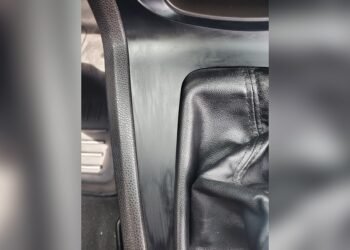Have you noticed a clicking noise coming from your Subaru every time you turn the wheel? That sound might seem small, but it’s often a warning sign you shouldn’t ignore.
Whether you’re making a slow turn in Austin traffic or cruising around Texas highways, this noise could mean worn parts like CV joints, ball joints, or issues with your steering system. Ignoring it could put your safety at risk and lead to costly repairs down the road.
You’ll learn why your Subaru makes that clicking noise when turning, what parts might be causing it, and what you should do to fix it before it turns into a bigger problem. Keep reading to protect your car and your peace of mind.
Common Causes Of Clicking Noise
Clicking noises when turning a Subaru often signal issues in the steering or suspension system. These sounds should not be ignored. They usually mean a part is worn out, loose, or damaged. Identifying the cause early helps prevent bigger repairs and keeps driving safe.
Worn Cv Joints
CV joints connect the wheels to the drive shaft. They allow smooth turning and movement. When these joints wear out, they produce a clicking sound. This noise often gets louder during sharp turns. Damaged CV boots can let dirt in, causing faster wear.
Damaged Ball Joints
Ball joints link the control arms to the steering knuckles. They enable wheel movement and steering control. If ball joints wear down, they may click or clunk. This happens as the joint loses lubrication or becomes loose. Driving with bad ball joints is risky.
Loose Tie Rods
Tie rods connect the steering rack to the wheels. They help in precise steering. Loose or worn tie rods can create clicking sounds while turning. This can also cause poor steering response and uneven tire wear. Tie rod problems need quick attention.
Faulty Steering Rack
The steering rack translates your steering wheel movements to the wheels. When it develops faults, clicking noises may appear. Internal wear or damage causes this. A failing steering rack can affect vehicle control and steering feel. Repairs should be done promptly.
Sway Bar Link Issues
Sway bar links connect the sway bar to the suspension. They reduce body roll during turns. Worn or loose sway bar links can produce clicking noises. This is common when driving over bumps or turning sharply. Replacing bad links restores smooth handling.
Steering Shaft Problems
The steering shaft connects the steering wheel to the steering rack. If the shaft or its joints wear out, clicking sounds may occur. These noises usually happen during steering wheel movement. Steering shaft issues can reduce steering precision and safety.
Other Suspension Components
Other parts like control arm bushings, struts, and wheel bearings can also cause clicking noises. Wear or damage in these components affects suspension performance. Regular inspection helps catch these issues early. Proper maintenance keeps the Subaru safe and comfortable.

Credit: www.reddit.com
Symptoms And Risks
Noticing a clicking noise when turning your Subaru is a warning sign. It often points to worn or damaged parts in the steering or suspension system. Understanding the symptoms and risks helps you act quickly. This reduces the chance of bigger repairs or accidents.
Noise Patterns And When They Occur
The clicking noise usually happens during slow turns or sharp corners. It often sounds like a repetitive click or clunk from the front wheels. Sometimes, the sound gets louder when turning the steering wheel all the way. The noise may also increase when driving over bumps or uneven roads. Early detection of these patterns can prevent further damage.
Safety Concerns While Driving
Driving with a clicking noise in the steering can be unsafe. It may mean loose or broken parts that affect control. The car might pull to one side or feel unstable. Sudden loss of steering control can cause accidents. Avoid driving long distances until the issue is fixed. Getting the problem checked improves your safety on the road.
Potential Steering Failures
The clicking noise can signal worn CV joints, ball joints, or tie rods. These parts connect the wheels to the steering system. If they fail, steering can become difficult or unresponsive. In some cases, the wheel may lock or detach from the steering. This leads to serious driving hazards. Prompt repairs stop small issues from becoming steering failures.
Diagnosing The Clicking Noise
Diagnosing the clicking noise in a Subaru when turning requires a careful and step-by-step approach. This noise often signals wear or damage in key components related to steering and suspension. Identifying the exact cause helps in fixing the problem early and avoiding costly repairs. Each part involved in the turning process needs a thorough inspection to find any signs of wear or failure.
Inspecting Cv Boots And Joints
Start by examining the CV boots for any cracks or tears. Damaged boots let dirt and moisture enter, causing the joints to wear quickly. Look for grease leaks around the boots, which is a clear sign of damage. Press or move the joint to check for looseness or rough movement. Worn CV joints often cause clicking noises during turns, especially at low speeds.
Checking Ball Joints And Tie Rods
Lift the vehicle and try to move the wheel hub side to side. Excessive play in ball joints or tie rods means they are worn out. Check for torn or missing rubber boots on ball joints, which protect them from dirt. Loose or damaged tie rods can cause clicking noises and affect steering control. These parts are crucial for safe handling and need quick replacement if faulty.
Evaluating Steering Rack And Shaft
Listen closely for noises near the steering rack and shaft while turning the wheel. Worn steering rack components can cause metal-on-metal clicking sounds. Check the steering shaft for looseness or worn joints. Any play in these areas can lead to poor steering response and noises. Proper lubrication and repairs can help if these parts show wear.
Assessing Suspension Components
Inspect the suspension parts like sway bar links, bushings, and control arms. Worn or loose sway bar links often cause clicking noises during turns or over bumps. Check the bushings for cracks or movement that should not be there. Control arms with worn bushings or ball joints can also produce similar noises. Replace any damaged parts to restore smooth and quiet turning.

Credit: www.reddit.com
Quick Fixes And Repairs
Subaru clicking noise when turning often points to suspension or steering issues. Quick fixes and repairs can stop this noise fast. Early action helps avoid bigger, costly problems. This section explains common fixes that car owners can check or ask a mechanic to handle.
Tightening Or Replacing Sway Bar Links
Sway bar links connect the sway bar to the suspension. Loose or damaged links cause clicking sounds during turns. Tightening the links can stop the noise if they are loose. If damaged, replacing them is necessary. New sway bar links improve stability and reduce noise.
Replacing Worn Cv Joints Or Boots
CV joints allow wheels to turn smoothly. Worn joints create clicking noises, especially when turning sharply. Inspect CV boots for cracks or grease leaks. Damaged boots let dirt in, causing joint wear. Replace worn joints or torn boots to fix the noise and protect the axle.
Ball Joint Repair Or Replacement
Ball joints connect the control arms to the steering knuckles. Worn ball joints create a clunking or clicking noise when turning. Check for excessive play by lifting the car and moving the wheel hub. Repair or replace faulty ball joints to restore safe steering and eliminate noise.
Steering Rack Servicing
The steering rack controls wheel direction. Worn or dry steering racks cause clicking noises and stiff steering. Servicing includes cleaning, lubricating, or replacing worn parts. Proper maintenance of the steering rack ensures smooth turns and stops unwanted sounds.
Steering Shaft Maintenance
The steering shaft connects the steering wheel to the rack. Loose or damaged joints in the shaft can cause clicking noises. Regular inspection and lubrication help maintain smooth steering. Repair or replace faulty parts to remove the noise and keep steering safe.
When To See A Mechanic
Hearing a clicking noise when turning your Subaru can signal a serious issue. Knowing when to see a mechanic helps prevent costly damage. Early diagnosis ensures your safety on the road. This section highlights key signs that require professional help, risks of delaying repairs, and tips for choosing the right technician.
Signs You Need Professional Help
Persistent clicking sounds during turns need prompt attention. If the noise grows louder or more frequent, it is a clear warning. Difficulty steering or vibrations in the wheel also indicate a problem. Visible damage to CV boots or leaking grease requires immediate inspection. Ignoring these signs can worsen the issue quickly.
Risks Of Delaying Repairs
Delaying repairs can lead to severe vehicle damage. Worn CV joints or ball joints may fail completely. This failure can cause loss of control while driving. Repair costs rise sharply if parts break down fully. Safety risks increase for you and other drivers on the road.
Choosing A Qualified Technician
Select a mechanic experienced with Subaru vehicles. Look for certified technicians who understand Subaru’s unique systems. Check reviews and ask for recommendations from other Subaru owners. Ensure the mechanic uses quality parts and offers clear estimates. A skilled technician can fix the problem right the first time.
Preventive Maintenance Tips
Preventive maintenance is key to avoiding clicking noises when turning your Subaru. Regular care helps keep suspension parts working smoothly. It also extends the life of your vehicle. Simple steps can reduce wear and prevent costly repairs. Here are some essential tips to maintain your Subaru’s suspension system.
Regular Suspension Inspections
Check your suspension parts often for wear or damage. Look at the sway bar links, ball joints, and CV boots. These parts can wear out and cause clicking sounds. Inspect them every few months or before long trips. Early detection helps fix problems before they get worse.
Lubrication And Component Care
Keep moving parts well-lubricated to reduce friction and noise. Use the right grease on joints and bushings. Dry parts can wear quickly and cause clicking. Clean dirt and debris from suspension components regularly. Proper care keeps parts moving smoothly and quietly.
Driving Habits To Reduce Wear
Drive gently over bumps and avoid sharp turns at high speeds. Hard driving stresses suspension parts and speeds up wear. Slow down on rough roads to protect joints and bushings. Smooth driving helps maintain your Subaru’s suspension and prevents clicking noises.

Credit: www.youtube.com
Frequently Asked Questions
Why Does My Subaru Make A Clicking Sound When I Turn?
Your Subaru’s clicking sound when turning likely comes from worn CV joints, ball joints, or loose sway bar links. Check for torn CV boots or loose suspension parts. Addressing these issues quickly prevents steering problems and ensures safe driving.
What Does It Mean When Your Car Makes A Clicking Noise When Turning?
A clicking noise when turning often signals worn CV joints or failing ball joints. Check for torn CV boots or loose joints to prevent steering issues. Addressing these promptly ensures safe driving and avoids costly repairs.
Is It Safe To Drive With A Clunking Noise When Turning?
Driving with a clunking noise when turning is unsafe. It signals worn or damaged steering or suspension parts. Get a mechanic to inspect and repair ball joints, CV joints, steering rack, or tie rods promptly to avoid loss of control or accidents.
Will A Bad Wheel Bearing Cause Clicking Noise?
A bad wheel bearing usually causes grinding or humming noises, not clicking. Clicking often signals worn CV joints or loose suspension parts.
Why Does My Subaru Make Clicking Noise When Turning?
Clicking often comes from worn CV joints or loose sway bar links in Subaru models.
Conclusion
A clicking noise when turning your Subaru signals a potential issue. Common causes include worn CV joints, ball joints, or sway bar links. These parts affect your car’s safety and handling. Ignoring the noise can lead to bigger, costly repairs or dangerous driving conditions.
Regular checks and timely repairs keep your vehicle reliable. Listen to your car’s sounds and act quickly. Your Subaru will stay smooth and safe on every turn.

















